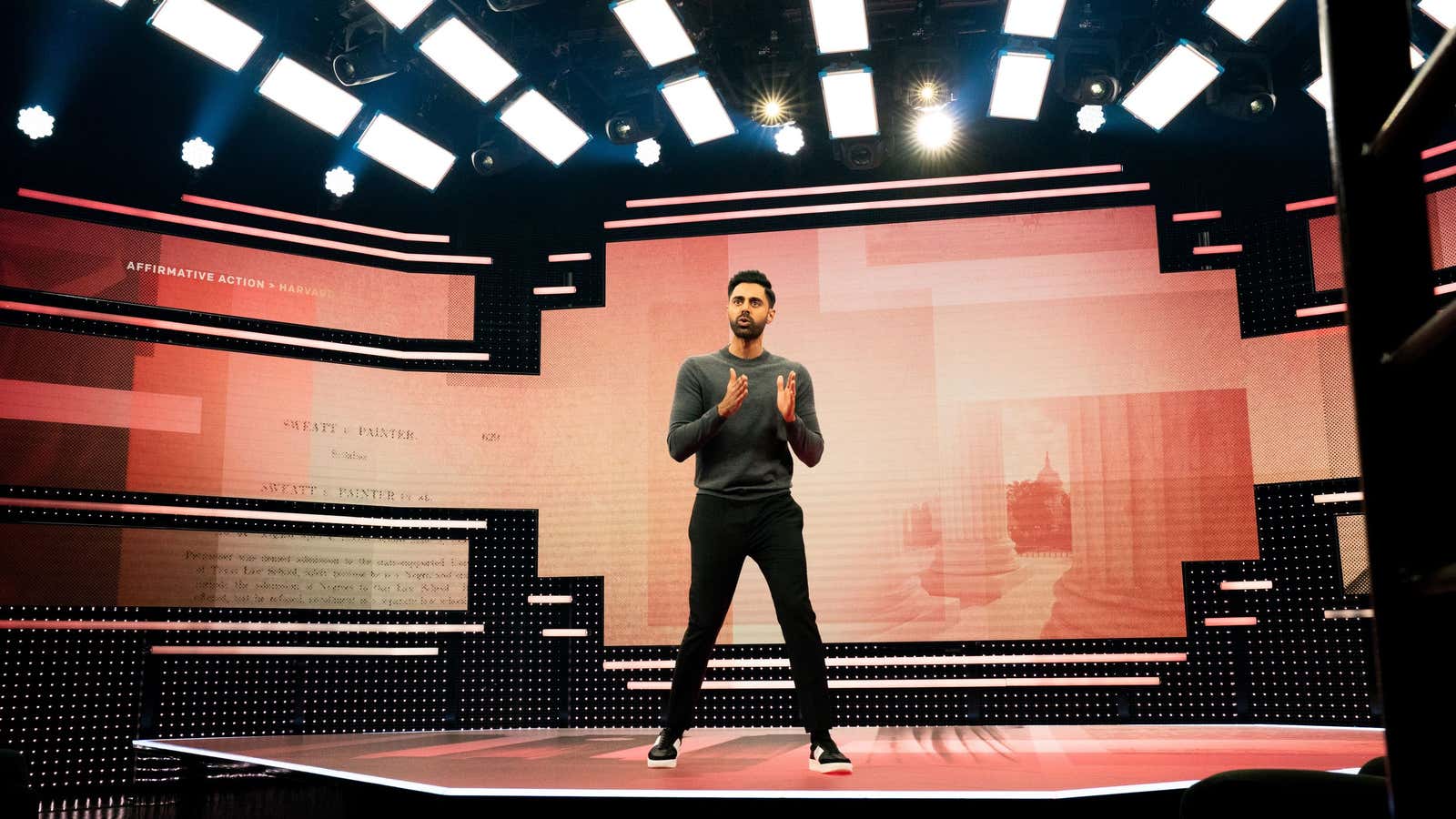Ragging on Cornell and the lack of diversity at CalTech; throwing out a passing reference to “AP Gov”; jeering at an SAT score of 1310. These may sound like lunchtime jokes at the nerd table of an engineering high school in New Jersey, but they are also the material that the comedian Hasan Minhaj is delivering, with aplomb, on his new Netflix show.
Patriot Act, which debuted on Oct. 28 and airs on Sundays, is hosted by the former Daily Show with Jon Stewart correspondent, and has its roots in the news-driven outrage humor that Stewart pioneered and other alums of his show (Stephen Colbert, John Oliver) still deliver. Each week Minhaj dives into a single topic—so far, affirmative action, Saudi-American relations, and Amazon.
Of the three episodes that are out, two highlight the refreshing perspective that Minhaj offers in stark contrast to that of those white, male weekly news hosts. In the episode on Saudi Arabia, Minhaj talks about the complicated relationship that he and other Muslims have with the country, joking, “Mecca and Medina are basically the Muslim infinity stones of holiness.” In the episode on affirmative action, he firmly rebukes the elders of his community: Asian parents who have opposed measures to increase black and Latino representation in elite American universities, thereby “dunking on every other minority group.”
Minhaj is a robust gesticulator—a tic he’s aware of–and he moves swiftly across a lit-up platform, unlike his desk-bound counterparts. The show also makes ample use of its multiple cameras, and the huge three-panel screen behind Minhaj and the one under his feet zoom somewhat cornily (an effect, as he puts it, ”like Michael Bay directed a power point presentation”). The result is a high-energy, at times very funny show that’s as informative as it is aerobic.
Not all his jokes land, but as with Stewart and Oliver, the content here is king. And unlike his predecessors, who have rejected the label of journalist, Minhaj embraces his role in the news. “It’s both: comedy and news,” he said recently at a dinner for press. “But comedy is necessary.”
His role as a journalist has had results; Minhaj’s criticism of a US military welcome manual that included racist language prompted an apology and an update to the document. Not every news topic lends itself to comedy, he said, adding that fans have wanted him to do an episode on the Rohingya crisis, in which more than 720,000 members of the minority group fled Myanmar following a brutal military crackdown. “I can’t make that funny yet,” he said.
Much of Minhaj’s nerd comedy works: He does an inspired bit about “Shitty Indians,” like the conservative commentator and conspiracy theorist Dinesh D’Souza. Along the way, he works in jokes about MCATs and GMATs, test prep classes, and not getting into Stanford.
With this, as with many of his bits, he’s speaking to an American audience that skews young, studious, and brown. Minhaj effectively draws his audience into a collective “we,” a generation of young Muslim and Asian Americans with a more socially progressive outlook than their parents. It’s an audience that isn’t often addressed this directly by mainstream TV—and one that seems delighted to be seen.
